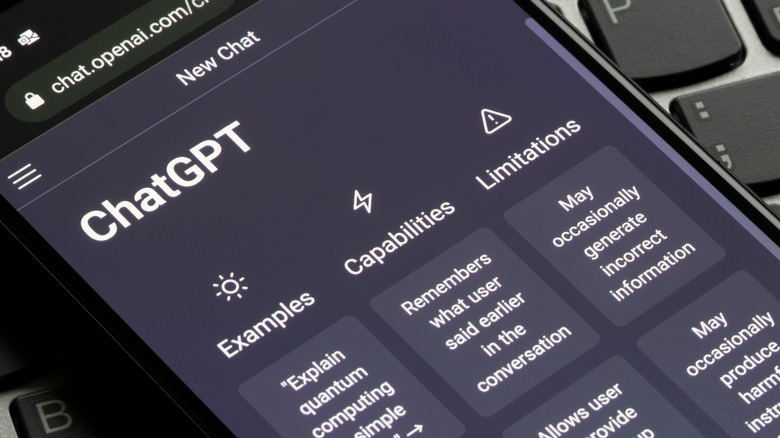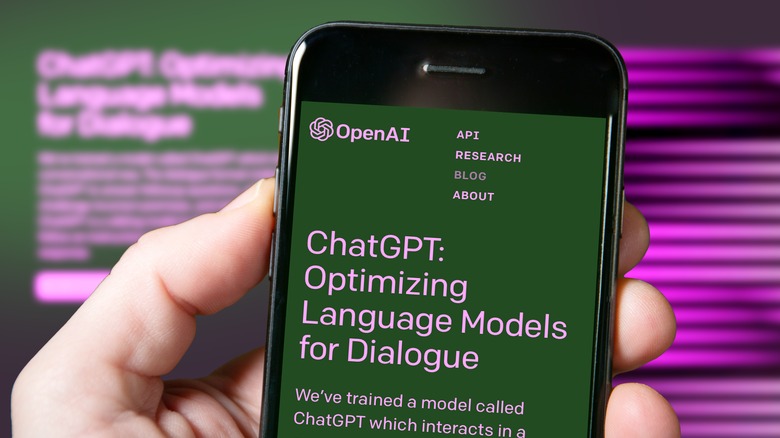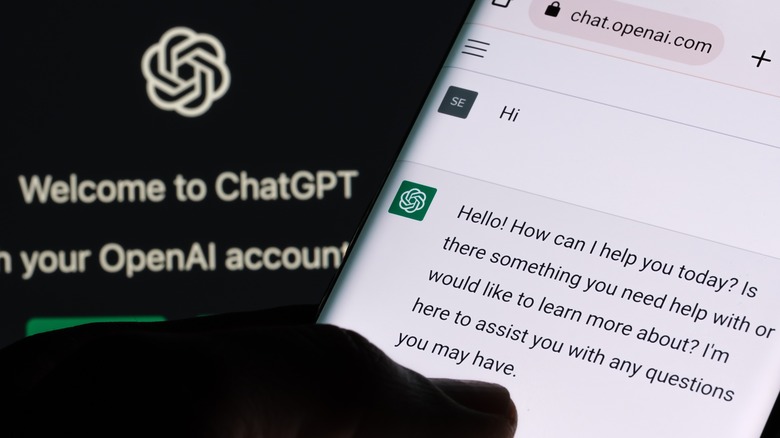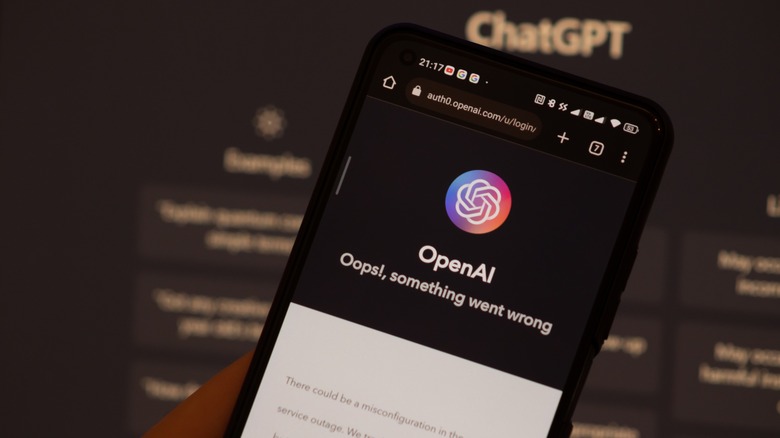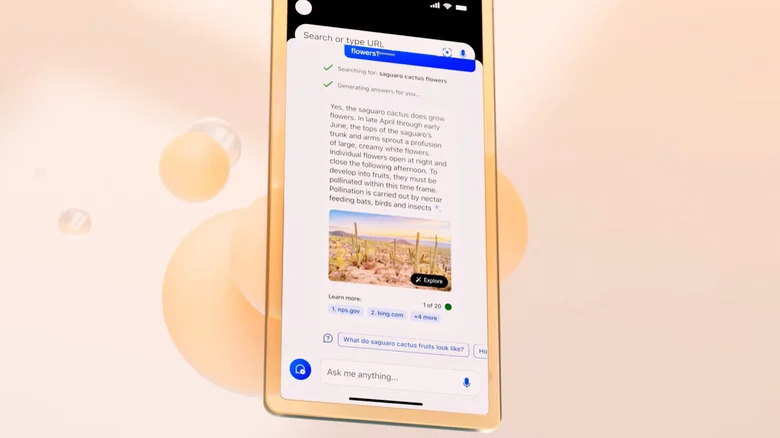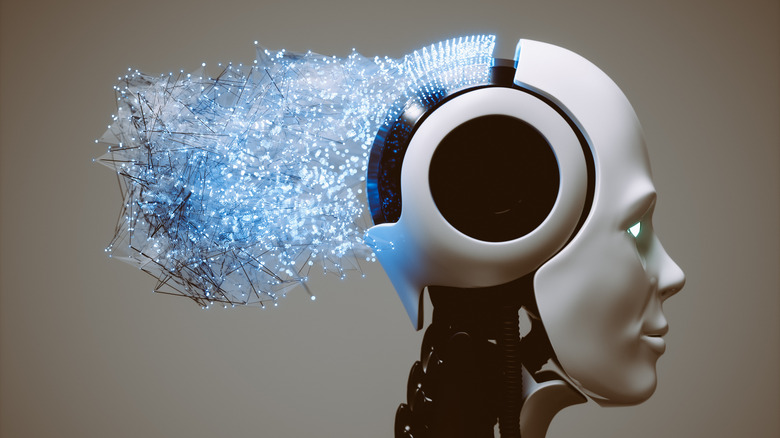GPT-5: Everything We Know So Far About OpenAI's Next Chat-GPT Release
2023 has witnessed a massive uptick in the buzzword "AI," with companies flexing their muscles and implementing tools that seek simple text prompts from users and perform something incredible instantly. At the center of this clamor lies ChatGPT, the popular chat-based AI tool capable of human-like conversations.
The current, free-to-use version of ChatGPT is based on OpenAI's GPT-3.5, a large language model (LLM) that uses natural language processing (NLP) with machine learning. Its release in November 2022 sparked a tornado of chatter about the capabilities of AI to supercharge workflows. In doing so, it also fanned concerns about the technology taking away humans' jobs — or being a danger to mankind in the long run.
GPT-3.5 was succeeded by GPT-4 in March 2023, which brought massive improvements to the chatbot, including the ability to input images as prompts and support third-party applications through plugins. But just months after GPT-4's release, AI enthusiasts have been anticipating the release of the next version of the language model — GPT-5, with huge expectations about advancements to its intelligence.
Here is everything we know about OpenAI's GPT-5 large language model.
When will GPT-5 be released?
OpenAI released GPT-3 in June 2020 and followed it up with a newer version, internally referred to as "davinci-002," in March 2022. Then came "davinci-003," widely known as GPT-3.5, with the release of ChatGPT in November 2022, followed by GPT-4's release in March 2023.
Based on the trajectory of previous releases, OpenAI may not release GPT-5 for several months. It may further be delayed due to a general sense of panic that AI tools like ChatGPT have created around the world.
GPT-4 sparked multiple debates around the ethical use of AI and how it may be detrimental to humanity. It was shortly followed by an open letter signed by hundreds of tech leaders, educationists, and dignitaries, including Elon Musk and Steve Wozniak, calling for a pause on the training of systems "more advanced than GPT-4."
Since then, OpenAI CEO Sam Altman has claimed — at least twice — that OpenAI is not working on GPT-5. In June 2023, at a press event organized by The Economic Times in New Delhi, India, Altman said, "We have a lot of work to do before GPT5. It takes a lot of time. We are nowhere close to it." Earlier, in April, Altman spoke at an MIT event and confirmed that OpenAI "won't [work on GPT-5] for some time." The executive added, "We are doing other things on top of GPT-4 that I think have all sorts of safety issues that are important to address."
Primary expectations from GPT-5: More power, better pricing
GPT-4 is currently only capable of processing requests with up to 8,192 tokens, which loosely translates to 6,144 words. OpenAI briefly allowed initial testers to run commands with up to 32,768 tokens (roughly 25,000 words or 50 pages of context), and this will be made widely available in the upcoming releases. GPT-4's current length of queries is twice what is supported on the free version of GPT-3.5, and we can expect support for much bigger inputs with GPT-5.
Notably, these larger queries also come at a price. While GPT-3.5 is free to use through ChatGPT, GPT-4 is only available to users in a paid tier called ChatGPT Plus. Pricing starts at $20 per month, which can be a deterrent. With GPT-5, as computational requirements and the proficiency of the chatbot increase, we may also see an increase in pricing. For now, you may instead use Microsoft's Bing AI Chat, which is also based on GPT-4 and is free to use. However, you will be bound to Microsoft's Edge browser, where the AI chatbot will follow you everywhere in your journey on the web as a "co-pilot."
Factual correctness and fewer hallucinations
Besides being better at churning faster results, GPT-5 is expected to be more factually correct. In recent months, we have witnessed several instances of ChatGPT, Bing AI Chat, or Google Bard spitting up absolute hogwash — otherwise known as "hallucinations" in technical terms. This is because these models are trained with limited and outdated data sets. For instance, the free version of ChatGPT based on GPT-3.5 only has information up to June 2021 and may answer inaccurately when asked about events beyond that.
In comparison, GPT-4 has been trained with a broader set of data, which still dates back to September 2021. OpenAI noted subtle differences between GPT-4 and GPT-3.5 in casual conversations. GPT-4 also emerged more proficient in a multitude of tests, including Unform Bar Exam, LSAT, AP Calculus, etc. In addition, it outperformed GPT-3.5 machine learning benchmark tests in not just English but 23 other languages.
OpenAI claimed GPT-4 has much fewer hallucinations and performed 40% higher than GPT-3.5 in its "internal adversarial factuality evaluations." GPT-4, moreover, has an 82% lower tendency to respond to "sensitive requests" or "disallowed content" such as self-harm or medical inquiries. Despite these, GPT-4 exhibits various biases, but OpenAI says it is improving existing systems to reflect common human values and learn from human input and feedback.
Eliminating incorrect responses from GPT-5 will be key to its wider adoption in the future, especially in critical fields like medicine and education.
Multimodal capabilities
GPT-4 lacks the knowledge of real-world events after September 2021 but was recently updated with the ability to connect to the internet in beta with the help of a dedicated web-browsing plugin. Microsoft's Bing AI chat, built upon OpenAI's GPT and recently updated to GPT-4, already allows users to fetch results from the internet. While that means access to more up-to-date data, you're bound to receive results from unreliable websites that rank high on search results with illicit SEO techniques. It remains to be seen how these AI models counter that and fetch only reliable results while also being quick. This can be one of the areas to improve with the upcoming models from OpenAI, especially GPT-5.
In addition to web search, GPT-4 also can use images as inputs for better context. This, however, is currently limited to research preview and will be available in the model's sequential upgrades. Future versions, especially GPT-5, can be expected to receive greater capabilities to process data in various forms, such as audio, video, and more.
Meta recently released details about its multimodal AI model, ImageBind, which can process six different types of data: text, image, videos, audio, depth, and heat maps. One can easily expect OpenAI to also progress in this area by the time it releases GPT-5, making it more useful in various fields of work and not limiting it to operating merely as a chatbot or AI image generator.
Anticipation and concerns around Artificial General Intelligence
A major drawback with current large language models is that they must be trained with manually-fed data. Naturally, one of the biggest tipping points in artificial intelligence will be when AI can perceive information and learn like humans. This state of autonomous human-like learning is called Artificial General Intelligence or AGI. According to IBM, AGI is the stage when machines "would have a self-aware consciousness that has the ability to solve problems, learn, and plan for the future." AGI is still a theoretical concept, with researchers and AI stakeholders divided on the exact time of its arrival. But the recent boom in ChatGPT's popularity has led to speculations linking GPT-5 to AGI.
Tools like Auto-GPT give us a peek into the future when AGI has realized. Auto-GPT is an open-source tool initially released on GPT-3.5 and later updated to GPT-4, capable of performing tasks automatically with minimal human input.
Considering how it renders machines capable of making their own decisions, AGI is seen as a threat to humanity, echoed in a blog written by Sam Altman in February 2023. In the blog, Altman weighs AGI's potential benefits while citing the risk of "grievous harm to the world." The OpenAI CEO also calls on global conventions about governing, distributing benefits of, and sharing access to AI.
While it may be an exaggeration to expect GPT-5 to conceive AGI, especially in the next few years, the possibility cannot be completely ruled out.
